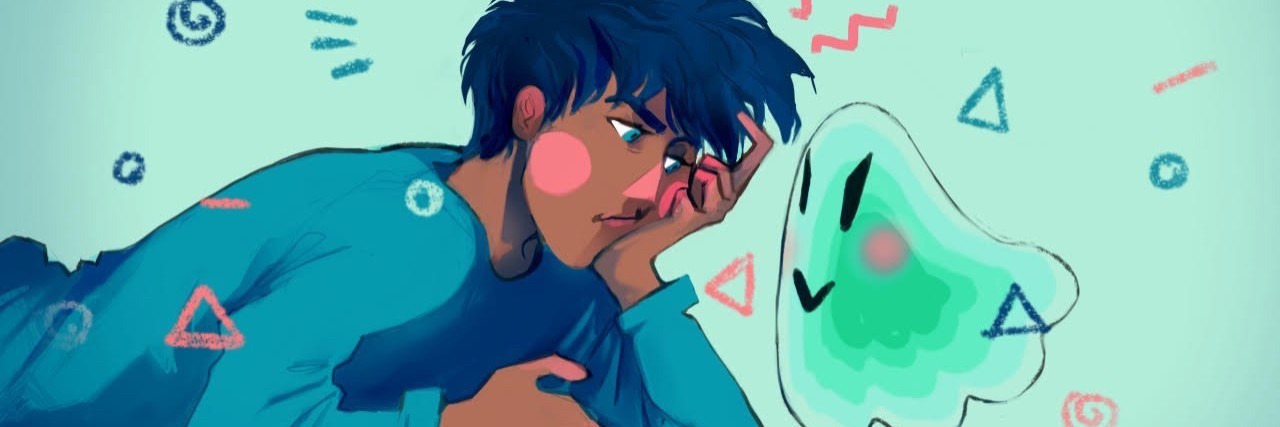“I have OCD.” When I tell people this, most nod sympathetically and say that they too have OCD. I question further and prod gently into the matter, wanting to know more. They then speak about how they cannot stand a pen being out of place, or that they want everything to be just so perfect. My heart aches in response and face sets in stone. I didn’t want to go through the immense trouble of explaining exactly what OCD was, but at the same time, I couldn’t just leave it be. I could not let them continue mislabelling such a debilitating disorder as a simple case of perfectionism.
Because that’s nothing close to what OCD is. It is a constant, everlasting fear in your mind that floods it with anxiety at the slightest slip of a thought. It is a torture that your own mind inflicts on itself. I remember thinking, “I would do anything to stop my OCD.” While my loved ones and therapist were immensely important in helping me learn that “my thoughts were just thoughts,” I realize the main reason why I was able to stop giving in to OCD was myself.
When those same people ask me how I actually overcame OCD, it is difficult for me to bring up the stash of memories hidden deep in a trunk at the very bottom of my mind, and glance through and analyze them. At times, I used to spout some nonsense about believing in myself and never giving in. Soon after, I realized how counterproductive that was. If this person I’m speaking to, if they or someone they know develop OCD, then would it not be better to just tell them my advice now? To spare them from the helpless wandering, wondering how to believe in themselves?
So, I willingly made the choice. Because OCD was something that no one deserves to have. No one, not even the worst person in the world, should have to experience being trapped in their own mind, wanting to claw and scream out but at the same time being afraid of the negative thoughts associated with clawing and screaming out. I unlocked that chest of torturous memories and delved deep in. I began talking more openly about the methods I used to reduce the intensity and supplemental meaning of my thoughts. Be it through procrastination of compulsions (something that was inherently easy for me), or through exposing myself to my fears, I shared it all. I talked about the underlying fear held in my heart, that people would think I’m a “freak” if I told them my thoughts, and how I was fortunate enough to have friends who were accepting and willing to help me. Soon, I realized that I wanted to reach out to a larger platform of people, to spread the knowledge I gained through my own experiences. I then happened upon app development.
It was perfect; a tool I could wield with incredible ease and which enabled me to connect with a massive platform of people. With my love for coding, it truly seemed like fate, a match made in heaven. I thought about whatever tools would have made my journey to recovery easier, and included it in the app. I worked hard for six months, recruiting people on the way who were similarly passionate about my cause to help me with various aspects of the app, such as graphics. We constructing an analogy for OCD that I truly resonated with: a ghost. This concept arose from the idea that OCD is not as one-dimensional as most people think; it has layers upon layers, or sheets upon sheets of hidden meaning, thoughts, and fears that come with them. It may appear to be small, helpful even in the beginning, making people think their actions are necessary for keeping clean or keeping safe. But, it grows, acquiring more layers and filling the person’s head with more and more horrifying images until they’re too afraid to say no to it. However, once a person strives to combat their OCD and resist their compulsions, it loses its layers and shrinks until it is all but a faint whisper. I christened the app “Liberate: My OCD Fighter.”
Now, OCD is a small niggling whisper in the back of my mind. It still emerges at times, but the urge to do a compulsion gets weaker with each and every time I resist. Every time I do so, I gain more control over my mind. After my app, the motivation to resist has increased — how can I help thousands of people suffering from OCD if I cannot even hold my own against my small ghost? It is something that I carry with me everywhere, the small, burning motivation that lights the fabric of my OCD, revealing it to be what it is — nothing.

